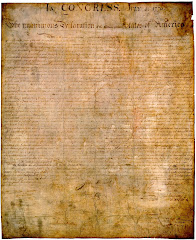 Global warming is hardly new; in fact, the very long-term trend began about 12,000 years ago with the end of the Ice Age. Anthropologist Fagan (The Little Ice Age) focuses on the medieval warming period (ca. 800-1300), which helped Europe produce larger harvests; the surpluses helped fund the great cathedrals. But in many other parts of the world, says Fagan, changing water and air currents led to drought and malnutrition, for instance among the Native Americans of Northern California, whose key acorn harvests largely failed. Long-term drought contributed to the collapse of the Mayan civilization, and fluctuations in temperature contributed to, and inhibited, Mongol incursions into Europe. Fagan reveals how new research methods like ice borings, satellite observations and computer modeling have sharpened our understanding of meteorological trends in prehistorical times and preliterate cultures. Finally, he notes how times of intense, sustained global warming can have particularly dire consequences; for example, by 2025, an estimated 2.8 billion of us will live in areas with increasingly scarce water resources. Looking backward, Fagan presents a well-documented warning to those who choose to look forward. Illus., maps. (Mar.)
Global warming is hardly new; in fact, the very long-term trend began about 12,000 years ago with the end of the Ice Age. Anthropologist Fagan (The Little Ice Age) focuses on the medieval warming period (ca. 800-1300), which helped Europe produce larger harvests; the surpluses helped fund the great cathedrals. But in many other parts of the world, says Fagan, changing water and air currents led to drought and malnutrition, for instance among the Native Americans of Northern California, whose key acorn harvests largely failed. Long-term drought contributed to the collapse of the Mayan civilization, and fluctuations in temperature contributed to, and inhibited, Mongol incursions into Europe. Fagan reveals how new research methods like ice borings, satellite observations and computer modeling have sharpened our understanding of meteorological trends in prehistorical times and preliterate cultures. Finally, he notes how times of intense, sustained global warming can have particularly dire consequences; for example, by 2025, an estimated 2.8 billion of us will live in areas with increasingly scarce water resources. Looking backward, Fagan presents a well-documented warning to those who choose to look forward. Illus., maps. (Mar.) Copyright © Reed Business Information, a division of Reed Elsevier Inc. All rights reserved.
"An alarm bell ringing out from a distant time."—Kirkus
"Superbly integrating the human and climatological past, Fagan’s expertise wears easily in a fine popular treatment relevant to contemporary debate about climate."—Booklist
"This is not only World History at its best, sweeping across all of humankind with a coherent vision, but also a feat of imagination and massive research. If Fagan has given the medieval period throughout the globe a new dimension, he has at the same time issued an irrefutable warning about climate change that is deeply troubling."--Theodore Rabb, author of The Last Days of the Renaissance
“Climate has been making history for a very long time, though historians have rarely paid much attention to it. But as it turns out, a few less inches of rain, a change in temperature of just a degree or two can make all the difference in how human events unfold. The Great Warming demonstrates that although human beings make history, they very definitely do not make it under circumstances of their own choosing.”--Ted Steinberg, author of Down to Earth: Nature’s Role in American History and American Green: The Obsessive Quest for the Perfect Lawn
“Looking backward, Fagan presents a well-documented warning to those who choose to look forward.”--Publisher's Weekly






